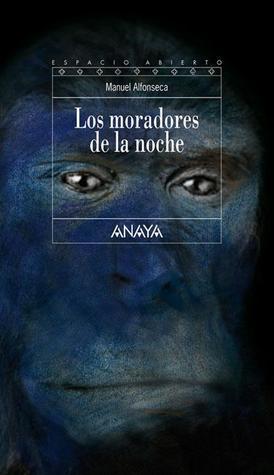The title of this post is similar to the title of a work by Charles Darwin, The descent of Man, his second most famous, although it can't be compared to his most famous work, The Origin of Species. But I’m not going to talk about Darwin or this book, as I dedicated another post to it before. I’m going to speak about a book with a similar title, Los Orígenes del Hombre (The Origins of Man) by Francisco de Paula Rodríguez Valls, with whom I’ve collaborated more than once and whom I’ve mentioned in another post in this blog.
In a similar way as my books The Fifth Level of Evolution and Evolución biológica y evolución cultural en la historia de la vida y del hombre, this book aims to show the uniqueness of man in relation to the other living beings. Its point of view is somewhat more philosophical than mine, but we agree on almost everything.
An interesting detail is the assertion that Darwin’s theory, based on the verification that natural selection helps living beings adapted to the environment, cannot be applied to man, for in our species the process works the other way around: human beings adapt the environment to themselves. As I explained in my first post mentioned above, I have also come to this conclusion.
In my own books I have tried to show that the
passage from animal to man went through a critical point, comparable to the boiling point of a liquid,
which in a very short space of time and at a fixed temperature, goes from the
liquid to the gaseous state. In one of my novels, Los
moradores de la noche
(available only in Spanish), I summarized this idea in the following words: Man studies
chimpanzees; chimpanzees don’t study man.
In his book, Rodríguez Valls defends the same
opinion, although what I call a critical
point he calls a qualitative leap. Let’s see how he explains it:
The
difference between dropping an atomic bomb and hunting a colobus is not just a
difference of degree; nor the difference between discovering penicillin and
giving a fruit to a hungry companion. Both mean killing or giving life, but
just as humans can do the four things indicated, other primates can do just two
of them.
In chapter 5.7 he discusses Juan Arana’s idea that
consciousness cannot be explained by science, arguing that explain and understand are complementary terms, and that if science
cannot explain consciousness, hermeneutics and phenomenology can help to
understand it. (I’ve said above that his point of view is more philosophical
than mine).
I especially liked section 5.8, on conscience and
fiction. I agree with the following quote, which is very interesting:
Truth and
verisimilitude are not the same thing, except in some mental pathologies...
I would add: and in modern
theoretical physics.
Another quote, from section 6.2:
Since it
goes against the phenomenal experience of freedom, the burden of proof falls on
deterministic positions. That seems to be clear: whoever denies what seems
obvious, must prove that it’s the rest of us who are in error.
And another suggestive quote from section 6.3:
No one can
-or should- impose on other people how they must be happy.
Thematic Thread about What is Man: Previous Next
Manuel Alfonseca


No comments:
Post a Comment